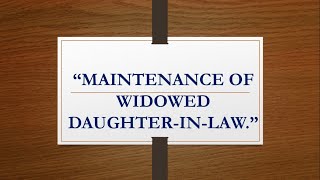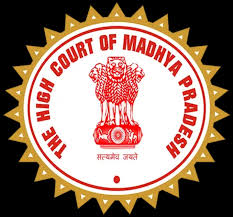Satish Kumar Mittal, J.@mdashThe State of Haryana has filed this appeal against the judgment dated 7.2.1996 passed by the court of learned Additional Sessions Judge, Hissar, whereby accused Asu Ram (respondent herein) was acquitted of the charge framed against him under Section 18 of the Narcotic Drugs & Psychotropic Substances Act, 1985 (hereinafter referred to as ''the Act''). As per the prosecution version, on 18.11.1993 in the area of village Ghursal, one Kg. of opium was recovered from the bag carried by the respondent-accused in his right hand. According to the prosecution, on receiving secret information at about 2.30 p.m. by Ronki Ram SI/SHO PS Adampur (PW 6), the same was reduced into writing (Ex. PC) and sent to the Police Station, on the basis of which FIR (Ex. PD) was registered against the respondent-accused. Later on, the respondent-accused was apprehended in the presence of one independent witness, namely Raj Kumar (who has not been examined by the prosecution). It is alleged that after apprehending the respondent-accused, an offer was given to him to get himself searched either in the presence of a Magistrate or a Gazetted Officer, as required under Section 50 of the Act. It is the further case of the prosecution that vide consent memo (Ex. PH), the respondent-accused opted to be searched in the presence of a Gazetted Officer. Thereafter, he was taken to Shri Moti Ram, Tehsildar, Adampur (PW 4), in whose presence, one Kg. of opium was alleged to have been recovered from the possession of the respondent accused. Out of the said opium, 100 grams of opium was taken out as sample, made into a parcel and was put in a tin dibi. The remaining opium was put into a Diba and a separate parcel of the same was prepared. Both the parcels were sealed with two seals, one of the said Tehsildar bearing impressions ''MRG'' and the other of Ronki Ram SI/SHO bearing impressions ''RR''. Both the sealed parcels were taken into possession by the police vide recovery memo Ex. PF. On return to the police station, on the same day, i.e. on 18.11.1993, both the aforesaid sealed parcels were deposited with MHC Vijay Singh (PW 1). On 26.11.1993, the sample parcel alongwith sample seals was sent to the Forensic Science Laboratory through Constable Umed Singh (PW 2) and according to the report (Ex. PM), contents of the sample were found to be ''opium''.
2. After completion of investigation, challan was filed. The respondent-accused was charge-sheeted for the offence under Section 18 of the Act, to which he did not plead guilty and claimed trial.
3. In support of its case, the prosecution examined six witnesses.
4. PW 1 HC Vijay Singh and PW 2 Constable Umed Singh are the formal witnesses, who have proved the link evidence, regarding depositing of the case property and sending the same to the Forensic Science Laboratory.
5. PW. 3 ASI Ram Niwas is another formal witness, who recorded the FIR (Ex. PD) on the basis of the secret information (Ex. PC), which was reduced into writing by the Investigating Officer of the case.
6. PW 4 Moti Ram Gupta, the then Tehsildar, Adampur, proved the search of the respondent-accused conducted by the police in his presence and recovery of 1 kg. opium from the possession of the respondent-accused.
7. PW 5 ASI Ram Kumar, in whose presence the respondent accused was apprehended and recovery was effected, and who attested the recovery memo, supported the prosecution case.
8. PW 6 Ronki Ram SI/SHO is the Investigating Officer of the case. He stated regarding the entire investigation conducted by him and proved all the documents, prepared by him during investigation of the case.
9. In his statement recorded under Section 313 Cr.P.C., the respondent-accused denied all the incriminating evidence appearing against him in the prosecution evidence. He pleaded innocence and his false implication. However, he did not lead any evidence in his defence.
10. The trial court, after examining the entire evidence led by the prosecution and after hearing learned counsel for the parties, acquitted the respondent-accused of the charge framed against him, primarily on two grounds. Firstly, that no proper offer regarding search was given to the respondent-accused, therefore, the mandatory requirement of Section 50 of the Act was not complied with, and secondly that the independent witness, in whose presence the alleged recovery was effected, was not examined by the prosecution.
11. We have heard learned counsel for the parties and have gone through the trial court record and the impugned judgment.
12. Learned counsel for the appellant-State argued that in the present case, Section 50 of the Act was not attracted, as the contraband was being carried by the accused in a bag, therefore, even if proper offer was not given to the respondent accused, it cannot be said to be fatal to the prosecution case. He further argued that if otherwise, recovery of the contraband from the conscious possession of the accused is proved, non-examination of the independent witness itself is no ground to acquit him.
13. Learned counsel for the respondent-accused, while supporting the reasoning recorded by the learned trial court in the impugned judgment, has pointed out two other weaknesses in the prosecution case, which were not taken care by the learned trial court. Firstly, learned counsel argued that as per the report of the Chemical Examiner to the Forensic Science Laboratory (Ex. PM), the actual weight of the sample was found to be 83 Grams, whereas according to the prosecution case, out of 1 kg. of the recovered contraband, sample of 100 Grams was taken out and sent to the Forensic Science Laboratory. She argued that there was deficiency of 17 Grams in the sample, which itself is fatal to the prosecution case. Learned counsel further argued that in the present case, there was delay of 8 days in sending the sample to the Forensic Science Laboratory. This fact also goes against the prosecution, particularly keeping in view the shortage of contents of the sample found by the Chemical Examiner as well as the fact that the sample seal was with the police officials, and there is no evidence led by the prosecution to prove that the sample was not tampered with. In this regard, learned counsel relied upon the decision of this Court in
14. After considering the submissions made by learned counsel for the parties, we do not find any ground to interfere in the impugned judgment, passed by the learned trial court. In the present case, the Investigating Officer had applied the provision of Section 50 of the Act. In that situation, we have to examine as to whether the requirement of the said provision has been complied with or not. We have perused the consent memo (Ex. PH) as well as the application (Ex. PC) moved by the Investigating Officer before the Tehsildar. A perusal of these documents clearly reveals that no offer was given by the Investigating Officer to the respondent accused to get him searched either in the presence of a Magistrate or a Gazetted Officer. Therefore, the requirement of Section 50 of the Act was not complied with. Once the Investigating Officer applied the said provision, then he was bound to apply the same in letter and spirit, which has not been done in the present case.
15. Secondly, undisputedly, the independent witness, who was joined at the time of apprehending the respondent-accused and effecting recovery from his possession, was not examined. The reason given by the prosecution is that he was won over by the respondent-accused. Usually, the independent witnesses are not examined by the prosecution by taking such plea, but in the present case, when the accused, who belongs to a distant place, was coming from Rajasthan side, examination of independent witness assumes importance. Further, it is highly improbable that a poor person coming from Rajasthan side will win over the police witness. Therefore, in our opinion, the trial court has rightly taken this aspect adverse to the prosecution case.
16. Thirdly, we have examined report of the Chemical Examiner to the Forensic Science Laboratory (Ex. PM). According to this report, there was shortage of 17 grams of the contents of the sample. There is no explanation by the prosecution in this regard. In the court also, learned Deputy Advocate General, Haryana, appearing on behalf of the appellant State, could not explain the said shortage in the sample. He argued that 17 grams was the weight of tin dibi, in which the sample was kept. But this argument cannot be accepted, because it has been categorically stated by the prosecution witnesses that 100 grams of opium was taken out as sample, which was put into a dibi and duly sealed and deposited with the MHC. This shortage assumes significance, particularly when there was 8 days delay in sending the sample to the Forensic Science Laboratory, and when the sample seals remained with the official witnesses. In these circumstances, possibility of tampering with the case property cannot be ruled out.
17. In view of the above, we do not find any illegality or infirmity in the impugned judgment. Hence, this appeal is hereby dismissed.

